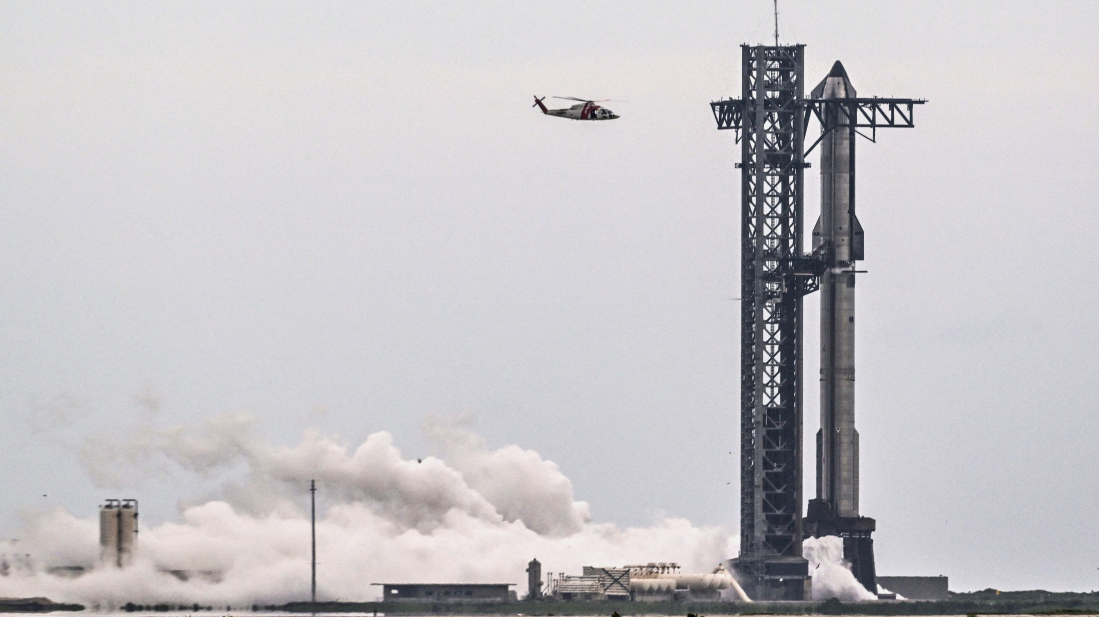Two killed in Israeli attack on first day of Ramadan in Gaza
Two Palestinians were killed on the first day of Ramadan after Israeli forces opened fire in the Gaza Strip, according to local sources and hospital o...

SpaceX postponed Starship’s 10th launch on Monday (25 August) due to cloudy weather in Texas, another setback in the rocket’s reusable Mars-focused design.
The 232-foot Super Heavy booster and its 171-foot Starship upper half, were filled with millions of pounds of propellant and ready for liftoff when SpaceX called off the launch around 8:00 p.m. EST (0000 GMT).
A liquid oxygen leak had also forced SpaceX to cancel Sunday’s attempt, CEO Elon Musk said on X.
Speaking briefly on SpaceX’s livestream, Musk highlighted Starship’s role in ferrying humans to Mars.
Developments have faced repeated setbacks this year, including early flight failures and a June test stand explosion that scattered debris into nearby Mexico.
Musk has long promoted Starship’s reusable design, which features increased thrust, a reinforced heat shield, and advanced steering flaps for atmospheric reentry.
The rocket must also demonstrate payload deployment, safe returns, and in-space refuelling to meet NASA’s moon mission objectives planned as early as 2027.
“In about 6 or 7 years, there will be days where Starship launches more than 24 times in 24 hours,” Musk said Sunday on X.
When it does fly, Starship will separate from its booster, which returns to a water landing off the Texas coast, while the upper stage ignites engines to continue into space.
The mission will include deploying mock Starlink satellites and testing reentry systems over the Indian Ocean.
The next attempt is scheduled for Tuesday (26 August), 7:30pm ET (2130 GMT).
Cuba’s fuel crisis has turned into a waste crisis, with rubbish piling up on most street corners in Havana as many collection trucks lack enough petrol to operate.
Ruben Vardanyan has been sentenced to 20 years in prison by the Baku Military Court after being found guilty of a series of offences including war crimes, terrorism and crimes against humanity.
Canadian Prime Minister, Mark Carney, announced on 16 February that the Honourable Janice Charette has been appointed as the next Chief Trade Negotiator to the United States. She's been tasked with overseeing the upcoming review of the Canada-United States-Mexico Agreement (CUSMA).
The Pentagon has threatened to designate artificial intelligence firm Anthropic as a “supply chain risk” amid a dispute over the military use of its Claude AI model, according to a report published Monday.
Israeli airstrikes on southern Lebanon killed two people in 12 hours, Lebanon’s Health Ministry said on Tuesday.
A platoon of Swedish Air Force Rangers is training in Greenland as part of the ongoing “Arctic Endurance” exercise, according to Sweden’s military.
U.S.-mediated talks between Russia and Ukraine in Geneva ended after two days of negotiations that Ukrainian President Volodymyr Zelenskyy described as difficult, while signalling progress on the military track.
Millions of Muslims around the world have begun observing Ramadan, the ninth month of the Islamic lunar calendar and the most sacred period in Islam.
Foreign intelligence services are able to see messages sent by Russian soldiers using the Telegram messaging app, Russia's minister for digital development Maksud Shadayev said on Wednesday, the Interfax news agency reported.
Meta Chief Executive Mark Zuckerberg is expected to testify in a high-profile trial in Los Angeles examining claims that the company’s platforms contributed to youth addiction and mental health harm.
You can download the AnewZ application from Play Store and the App Store.

What is your opinion on this topic?
Leave the first comment